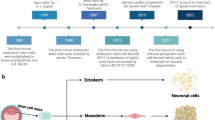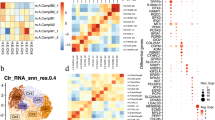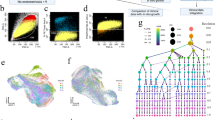Abstract
The aim of this study was to analyze adipose tissue-derived mesenchymal stem cells (AT-MSCs) using the Pap test as a first screening step to evaluate genetic stability. Human adipose tissue from six healthy female donors was obtained from elective liposuction procedures. The cells were isolated, cultivated at P2/P3, characterized by flow cytometric analysis, and differentiation induced. The AT-MSCs were stained by Papanicolaou staining and analyzed according to the Bethesda classification, and viability-apoptosis relationships were evaluated. The results of the Pap test for Sample I indicated high-grade alterations consistent with genetic instability; for Samples II-V, atypical cells of undetermined significance; and for Sample VI, normal cells. These results demonstrate the potential of using the Pap test as an initial screening step to evaluate the genetic stability of cultured AT-MSCs and also suggest its use for other adherent cells such as embryonic stem cells or induced pluripotent stem cells.
Similar content being viewed by others
Article PDF
Author information
Authors and Affiliations
Corresponding author
Rights and permissions
About this article
Cite this article
Carvalho, K., Irioda, A., Zocche, L. et al. Why not "do simple things in a simple way": Use of the Pap test as the first step in screening genetic stability for human cultured stem cell therapy?. Nat Prec (2011). https://doi.org/10.1038/npre.2011.5676.1
Received:
Accepted:
Published:
DOI: https://doi.org/10.1038/npre.2011.5676.1



